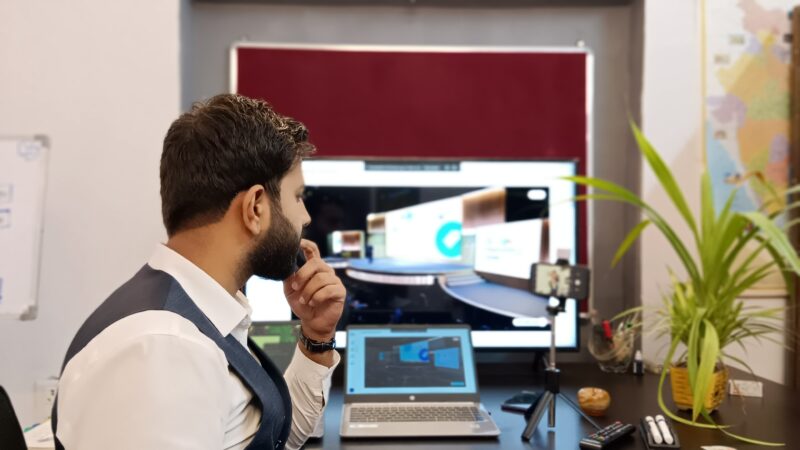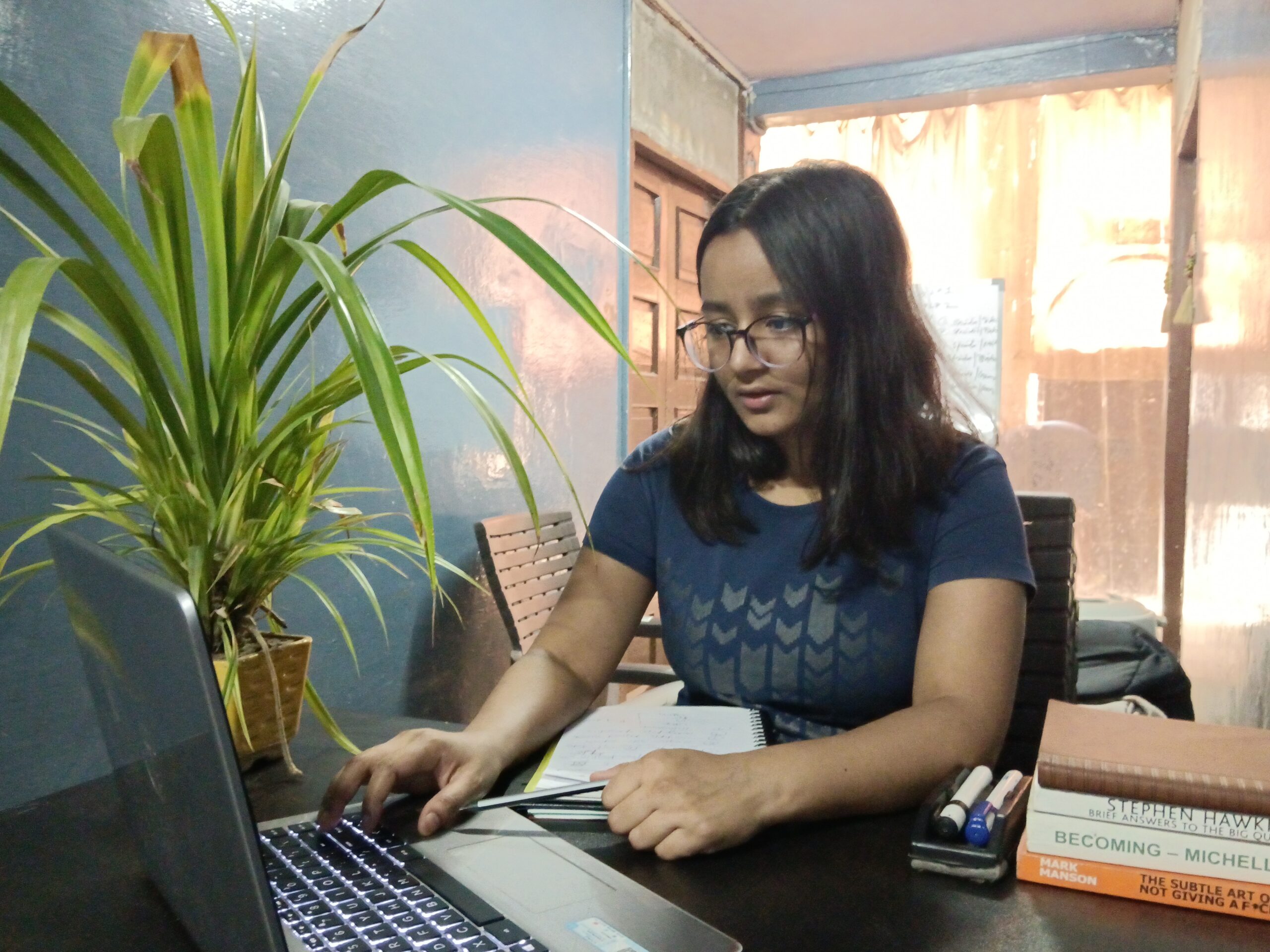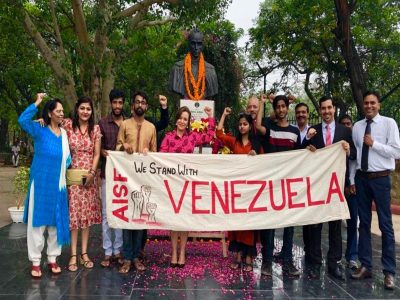In 2020, from Q1 to Q2, resulting from several factors such as rising cases of job losses and flexibility in working from home during the Covid-19 pandemic, India accounted for a phenomenal 46% growth in freelancers, according to media reports.
Nupur Mahour, a 23-year-old resident of Shahdara, East Delhi, switched to freelance content writing when she lost her job during the pandemic. She is a 2019 graduate from Shri Ram College of Commerce, University of Delhi, and that job was her first step into entering the corporate world. “When I lost that job after giving my one year to it, I felt devastated. I realized there is no such thing as job security, and unfortunate events like this can happen again. That’s when I got into freelancing full-time”, she says.
Mahour is cheerful that her freelancing journey has been more rewarding than her corporate job, both in appreciation and monetary benefits. “Even if you are the person behind some project’s success, someone else will take the credit for it. Moreover, you won’t even get fair pay no matter how much time you have invested to make the XYZ project successful”, she adds.
While many, including Mahour, hail freelancing as a lucrative opportunity, the community has its share of challenges. Agam Gupta, a 24-year-old Noida-based freelance cinematographer, points to how freelancers hustle in finding clients. He says, “There is a never-ending rat race to get work from the clients. It is not uncommon for clients to come and say that the other person is charging a lower price. In such scenarios, especially during the off-season, sometimes we compromise on the price range while adhering to providing quality work.”
He adds that the high cost and risk factors for the usage and maintenance of sophisticated pieces of equipment for cinematography are solely his responsibility.
Subodh Verma, 28, who has been working as a freelance digital marketer since 2014, shares similar views. Doing a comparative analysis between freelancing and job, he says, “What I miss is insurance, provident fund, travel and shopping vouchers, festival celebrations, gifts and other corporate benefits. Although I earn a handsome amount of money at the end of every month, my CIBIL (Credit Information Bureau India Ltd) score is low. Also, there is no fixed appraisal for me. I have to work on my appraisal by myself. The hard part is to maintain the same amount every month.” However, he adds jokingly, that he is “far better than 9 to 5 jobs”.

Even if devoid of most corporate perks, freelancing pays high returns compared to the corporate jobs. Sometimes, the work culture is as competitive as that of corporate entities, when individuals vie to lay their hands on the best projects on offer. However, with its pros and cons, the growing acceptance of freelancing culture has proven to be a boon for the female workforce.
Sithara Suseela, 27, belongs to Kerala and started working as a freelance script-writer four years ago. As the eldest child of the family, and as a woman, she feels responsible for some significant tasks such as basic domestic chores and guiding her younger siblings in studies, among others. For her, freelancing has provided an opportunity to untie herself from geographical constraints and become financially independent.
“Working as a freelancer helped me a lot in managing work and home. Initially, it was a struggle to fit both my work and home life, but I can manage both of them with freelancing while working from home. All I ever need is a laptop and good (Internet) connectivity”, she says.
Like Sithara, millennials aspire to inculcate more activities in their daily schedules rather than abide by a monotonous 9-5 corporate routine. However, interestingly, this is not the case with the freelancers who either drop out of the corporate world or never step in it. They work in isolation and have no ties to corporations.
Even though, by definition, freelance culture provides a sharp contrast to the corporate culture, lately, even business giants like Google have started embracing the freelance community. According to a Bloomsberg report, the US-based search engine employed more freelancers than regular employees in 2018.
In India too, Walmart-owned fin-tech company PhonePe has recently acquired GigIndia, a Pune-based leading network for freelance micro-entrepreneurs to tap the community’s potential. Increasingly, corporations are also embracing creative freedom, lending time flexibility, and valuing the domain expertise of freelancers.
Take, for example, Ashi Jain, the lead editor at CBD Marketing Solutions, a start-up based in Pitampura, West Delhi, that helps brands establish their online presence. The company majorly hires freelance writers and in turn, provides high-quality, SEO-enhanced content services to other companies.
According to Jain, “Freelancing seems quite convenient and straightforward with a simple idea of work and payment but (usually) without any austere commitments. Having said that, I feel like the whole bond between a corporate employee and a freelancer is somewhat challenging at the base, communication being the arduous hurdle. It is an ideal example of ‘looks like a cakewalk, but isn’t’.”
She adds that while there is no limit to the work that a freelancer can do for a firm, a systematized process for tracking the orders, assignments and payments must be in place. “Additionally, timely payments also take the front seat at a freelancer’s show; it builds the foundation of a mutually benefiting and long-lasting relationship between the two”, she says.
The coming together of corporates and freelancers to work in conjunction is proving instrumental in the flourishing of the gig economy. As per reports, India’s budding freelance community is expected to grow to $20-30 billion by 2025. Most importantly, India’s projected growth as one of the largest freelance economies and the exponential cultural expansion of freelancing is also symbolic of the change in mindsets. While many gig workers consider freelancing as their additional source of income, a good percentage also aspire to undertake freelancing as a career option.
Delhi-based freelance writer Ayesha Gupta, 22, has a legal academic background. She shares her domain expertise with clients by drafting and compiling legal documents. On whether she sees her career as a freelancer in the future, she instantly says, “Yes, I want to work as a full-time freelancer once I learn about the intricacies of this field. I can even build a business out of this.”
For Ayesha and many like her, even though freelancing has its challenges, such as unpredictability in getting new projects and clients, she believes that the freedom that freelancing offers is far more liberating than any job. “Ideas such as creative liberty and (time and space) flexibility form a huge part of freelancing culture, which is why I think we are more attracted to it”, she says.
For more stories that cover the ongoings of Delhi NCR, follow us on:
Instagram: https://www.instagram.com/thepatriot_in/
Twitter: https://twitter.com/Patriot_Delhi
Facebook: https://www.facebook.com/Thepatriotnewsindia





